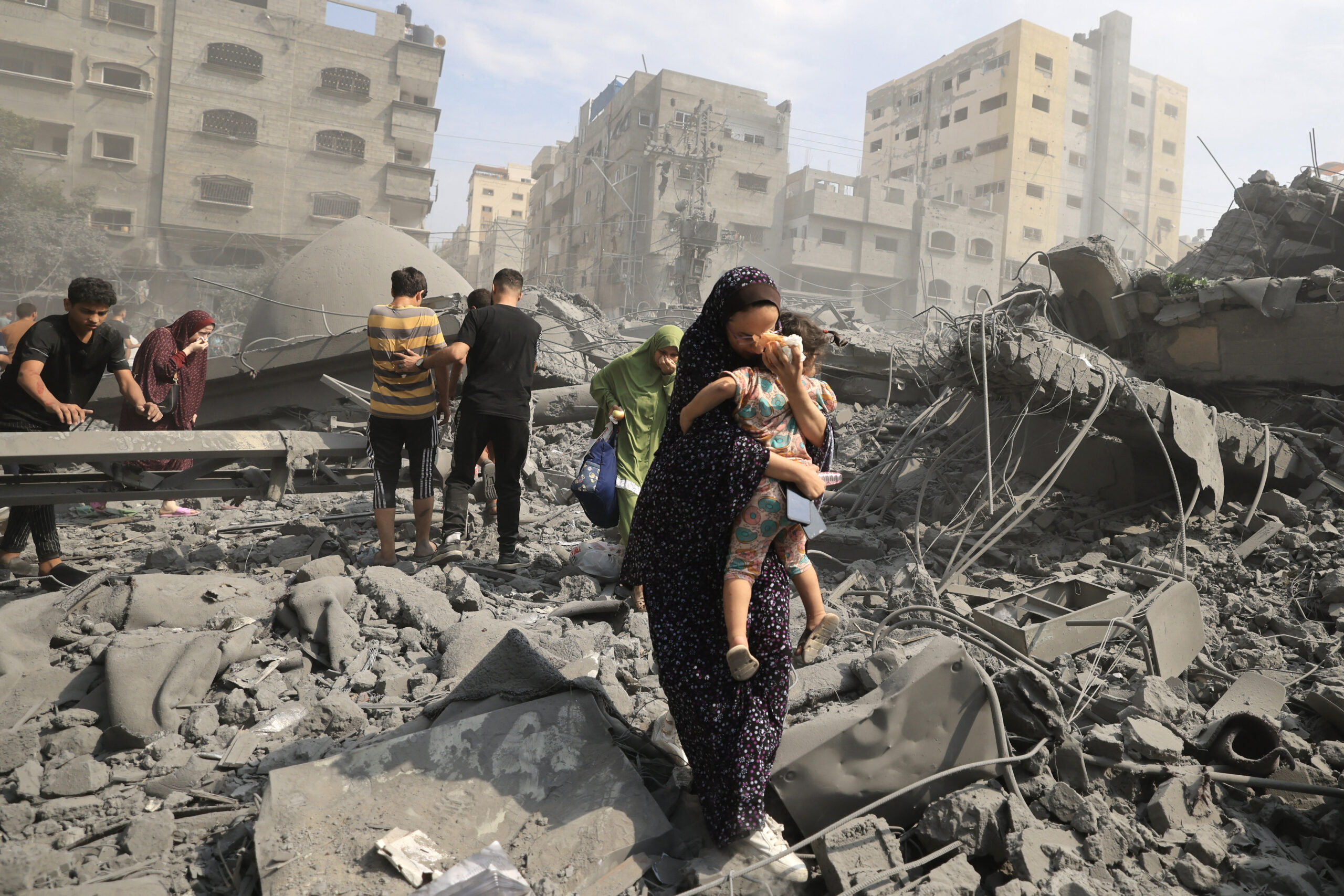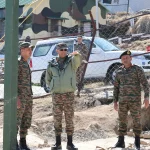Gaza’s civil defense agency has reported deadly air strikes around the Kamal Adwan Hospital in the northern part of the territory, with claims of “direct fire” hitting the health facility itself. Despite these allegations, the Israeli military has firmly denied striking or entering the hospital, asserting that their operations are conducted nearby.
Witnesses described scenes of devastation, noting that a series of air strikes targeted the northern and western sides of the hospital, leading to intense and direct confrontations. Hospital director Hossam Abu Safieh confirmed the tragic loss of four staff members during the bombings and detailed the situation as dire.
The Israeli military released a statement categorically rejecting accusations that it had engaged in any hostilities against Kamal Adwan Hospital. They indicated that their operations would persist in the area, stressing their commitment to counteracting what they termed “terror infrastructure and terrorists” adjacent to the hospital.
As the situation escalated, Gaza’s civil defense agency reported a significant toll, stating that 29 people were killed and many more wounded due to Israeli shelling, particularly around the beleaguered hospital, one of the last remaining health centers in the region.
Spokesman Mahmud Bassal conveyed additional grave claims, asserting that Israeli forces had entered Kamal Adwan, evacuated patients, and arrested multiple Palestinians. The impact on medical staff has been severe, with Abu Safieh lamenting the latest raid that left the hospital without any surgeons on duty.
The ongoing conflict has intensified in Beit Lahia, where Israeli military operations have been active for nearly two months, displacing thousands of residents. The Israeli forces have repeatedly stormed Kamal Adwan since the onset of hostilities, with reports indicating the hospital’s intensive care unit director was killed in an air strike several weeks ago.
Recent air strikes occurred shortly after the World Health Organization announced that an emergency medical team had reached the hospital for the first time in 60 days. However, Dr. Faradina Sulistiyani, a surgeon on that team, reported that all members were forced to evacuate on foot amid the ongoing bombardment.
Rik Peeperkorn, the UN agency’s representative in the Palestinian territories, divulged chilling accounts from Kamal Adwan, advising that Israeli army presence was detected as early as 4:00 am. The urgency of evacuations was compounded by chaos and panic caused by the bombing, though no official evacuation order was issued, leaving many patients and staff behind.
With critical supplies running thin due to ongoing military operations since October, resources at the hospital have dwindled, including a severe shortage of fuel. The Israeli army maintains that they are in constant communication with the hospital to facilitate the delivery of essential supplies, food, and medical equipment.
The military’s operations in northern Gaza are ostensibly aimed at preventing Hamas militants from regrouping. However, human rights organizations have raised concerns about a broader strategy to either evacuate or starve the remaining population in the area—a claim the Israeli government disputes. Spokesman David Mencer recently stated that displaced residents would not be permitted to return to northern Gaza while military operations are ongoing.
The current conflict in Gaza erupted after a surprise attack by Hamas on October 7, 2023, which resulted in the deaths of 1,208 individuals, predominantly civilians, according to an AFP tally. Since then, Israel’s retaliatory efforts have led to a catastrophic death toll, with at least 44,612 reported fatalities in Gaza, primarily among civilians, as per figures from the territory’s Hamas-run health ministry, which the UN considers credible.













